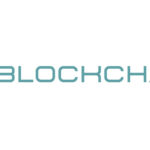Faced with the severe impact of U.S. sanctions and declining oil revenues, Venezuela’s government is turning to cryptocurrencies as a lifeline for facilitating currency exchanges within the private sector. According to various sources, the measures imposed by the United States are severely restricting business transactions by limiting access to foreign currency, which the Venezuelan authorities have described as an ‘economic war’ against the nation.
Despite a recent decision by the Treasury Department, which issued a restricted license for Chevron to export oil, the continuing prohibition on payments to the Venezuelan government has significantly hampered the availability of dollar reserves for currency exchanges. In light of these challenges, the Venezuelan government is increasingly pushing for the adoption of cryptocurrencies, particularly stablecoins like Tether (USDT), which are pegged to the dollar to help stabilize transactions.
Insider reports indicate that PDVSA, the state-run oil company, is gradually implementing digital currency operations. This transition is seen as crucial for maintaining economic functions amid ongoing sanctions that have crippled traditional financial infrastructures. Private businesses in Venezuela, struggling to navigate the constraints of the conventional banking system, have begun to embrace cryptocurrencies more broadly for their transactions, seeking to circumvent the limitations that have hindered their operations.
While there are no official statistics detailing the extent of cryptocurrency usage in Venezuela’s economy, estimates suggest a notable increase in crypto transactions among private sectors. This shift towards digital currencies marks a significant pivot as the country endeavors to adapt to an ever-tightening financial landscape, relying on innovative solutions to address the economic pressures stemming from international sanctions.







